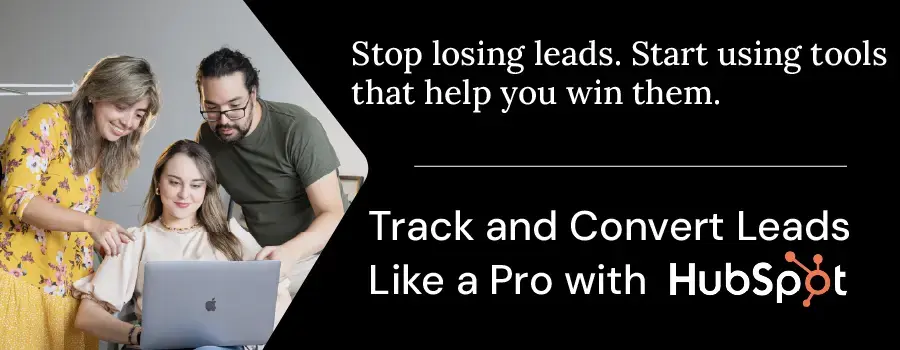
Why Enterprise Companies Choose HubSpot Over Salesforce
-
22 de August 2025
-
 Daniel Moreno J
Daniel Moreno J
When large organizations evaluate their CRM stack, Salesforce often comes up as the “safe” choice. After all, it has been the enterprise standard for decades. But a growing number of enterprise companies are turning to HubSpot as a Salesforce alternative—attracted by faster implementation, easier customization, and a more user-friendly platform.
In this article, we’ll break down the main reasons why enterprise businesses choose HubSpot over Salesforce, where HubSpot shines, and where it may fall short—so you can make an informed decision about your CRM strategy.
Why Enterprises Are Choosing HubSpot
1. Faster Time-to-Value
Enterprise rollouts with Salesforce can stretch over quarters or even years due to complex customization and integration needs. HubSpot’s out-of-the-box functionality allows enterprise teams to get up and running in weeks, not months. That speed translates into quicker ROI and less disruption.
2. Ease of Use Across Departments
Adoption is one of the biggest barriers to CRM success. HubSpot is designed with a clean, intuitive interface that sales reps, marketers, and service teams actually enjoy using. This reduces training costs and increases CRM adoption across the enterprise.
3. AI-Powered Productivity
HubSpot has leaned heavily into AI to support enterprise teams in reducing time spent on repetitive tasks and accelerating outcomes:
-
Sales Prospection & Research: AI prospecting agents automatically surface high-quality leads, analyze intent signals, and reduce manual research.
-
Personalized Outreach: AI-driven recommendations help sales reps tailor messages, improve conversion rates, and shorten sales cycles.
-
Marketing Efficiency: AI content tools accelerate campaign creation, from generating blog drafts to optimizing email subject lines.
-
Customer Service: AI-powered customer agents streamline support, suggest answers, and provide customers with faster, more consistent responses.
This makes HubSpot a platform not just for managing customer relationships but for enhancing team performance with intelligent automation.
4. Customization Without Heavy IT Dependence
Salesforce is infinitely customizable—but that flexibility often requires dedicated admins and developers. HubSpot provides a balance: it offers custom objects, workflows, and reporting, but within an environment that business users can manage without needing a full IT department.
5. Integrated Marketing, Sales, and Service
Many enterprise companies rely on a patchwork of disconnected tools. HubSpot offers a unified platform that connects marketing automation, sales engagement, customer service, and CMS—all in one ecosystem. This eliminates silos and creates a single source of truth for customer data.
6. Transparent Pricing
Enterprises often find Salesforce’s pricing structure unpredictable, with add-ons, licensing tiers, and admin costs inflating total ownership costs. HubSpot offers straightforward enterprise packages, so CFOs and procurement leaders can forecast more accurately.

The Enterprise Trend: From Heavyweight to Agile CRM
The shift from Salesforce to HubSpot reflects a broader enterprise trend: agility over complexity.
Today’s enterprise buyers prioritize faster time-to-value, easier adoption, and platforms that reduce dependency on IT. HubSpot has evolved into a serious enterprise contender, with features like custom objects, advanced reporting, AI-powered automation, and governance tools that meet large-scale requirements.
Is HubSpot the Right Salesforce Alternative for You?
If your enterprise is seeking: A CRM that teams actually use Faster implementation and ROI Integrated marketing, sales, service, and AI-driven automation Transparent pricing and lower total cost of ownership …then HubSpot may be the better choice over Salesforce. However, if your organization requires deeply complex quoting, e-commerce infrastructure, or niche industry customization, Salesforce may still be the stronger fit.
What do you value the most?
Enterprise CRM decisions are not about brand legacy—they’re about adoption, ROI, and long-term scalability. HubSpot is no longer just for mid-market companies; it has matured into a true enterprise-grade alternative to Salesforce, trusted by organizations that value clarity, speed, AI-powered productivity, and unified customer experiences.
 Daniel Moreno J
Daniel Moreno J
Business Administrator from Universidad del Rosario. Passionate about marketing with more than 8 years of experience in digital marketing leading strategies and implementing SEO, SEM, Inbound Marketing and more. I work as an Implementation Strategist here at Triario!

